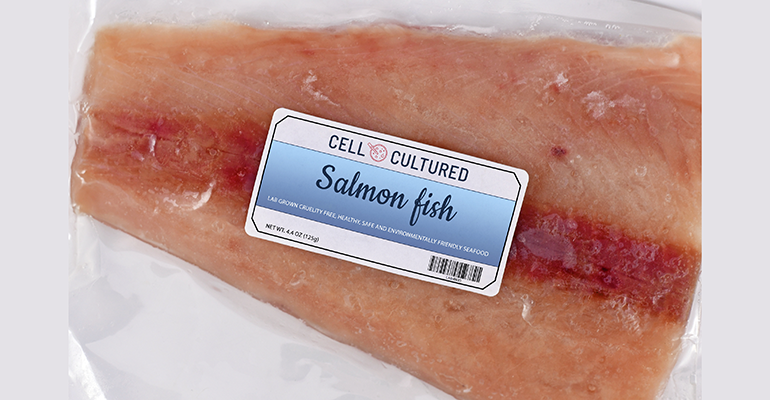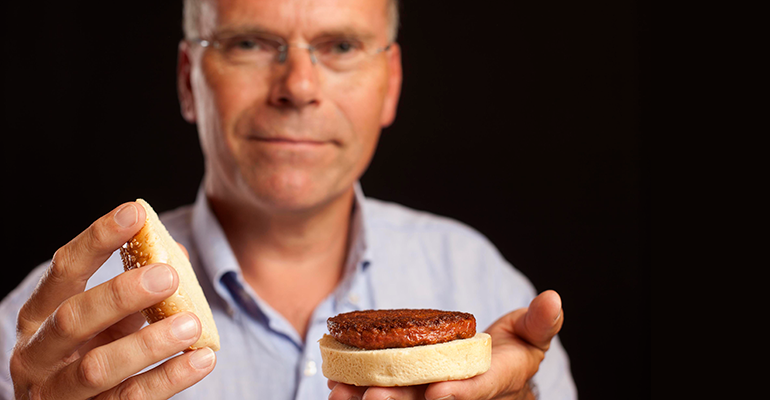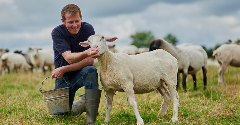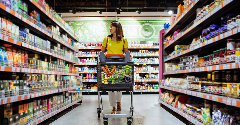News
Industry first: The Netherlands approves cultivated meat and seafood tastings
17 Jul 2023
The Netherlands has become the first country in Europe to approve tastings of cultivated meat and seafood in controlled environments, yet there is still a long way to go before widescale commercialisation is achieved.
In a landmark decision for the food industry, the Dutch government has approved tastings of cultivated meat and seafood, without the need for EU novel food approval. This change in legislation makes the Netherlands the first country in Europe to allow tastings of such products and weighs significantly on the future of the global cultivated meat sector.

The Netherlands leads the way in Europe
On 5 July, the Dutch government published a so-called ‘code of practice’ laying out set of agreed conditions by which cultivated meat and seafood products can be tasted in controlled environments in the Netherlands. The document was produced in consultation with Dutch biotech association HollandBIO as well as local cultivated meat manufacturers Mosa Meat and Meatable.
“This is a great achievement for the Dutch government and another proof point that the Netherlands is a global leader in agriculture and food innovation,” said Maarten Bosch, CEO of Mosa Meat.
“Mosa Meat will use these controlled tastings to gather invaluable feedback on our products and to educate key stakeholders about the role cellular agriculture can play in helping Europe meet our food sovereignty and sustainability goals.”
The announcement comes after the launch of the National Growth Fund, a government scheme pledging €60 million in aim of making the Netherlands a global leader in cellular agriculture. Cellular Agriculture Netherlands (CANS), a consortium of industry stakeholders set up to oversee the project, will be responsible for implementing the framework.
The approval offers hope for the future of food and the planet
Cultivated meat, also known as lab-grown or cell-cultured meat, is transforming the way meat is produced and consumed. By culturing animal cells in bioreactors, manufacturers can create products that replicate the sensory and nutritional profiles of conventional meat, without the need for traditional animal farming.
This technology offers promising solutions to pressing challenges such as environmental sustainability, animal welfare, and global food security.
“This is great news for the Netherlands. We know cultivated meat can significantly help reduce climate impact. By enabling the tasting of cultivated meat, The Netherlands maintains its pioneering role in Europe and beyond,” said Krijn de Nood, Meatable CEO.
“For Meatable, this means that we can allow consumers to taste and experience our products and make our products even better with their feedback.”
A step in the right direction, but a long road ahead
Since Dutch scientist Mark Post created the world’s first cultivated beef burger in Maastricht University a decade ago, the Netherlands has established itself as a frontrunner in embracing alternative protein sources. The sale or consumption of cultivated meat however not authorised in the country, lacking EU novel food approval.
 Mark Post presents first cultured beef burger in 2013 | Credit: Mosa Meat
Mark Post presents first cultured beef burger in 2013 | Credit: Mosa Meat
"Cultivated meat must still secure regulatory approval at the EU level before it can be placed on the market, but in enabling research and opening a conversation between producers, the public and government authorities, this development will strengthen confidence in this sector's future," said Seth Roberts, policy manager at the Good Food Institute (GFI) Europe, a non-profit organisation that aims to promote an animal-free food system.
This move showcases the government’s dedication to fostering innovation and pioneering the growth of the cultivated meat industry. Yet consumers may still have to wait a while before they can expect to see cultivated meat products in supermarkets and restaurants.
The journey to approval is complex, requiring a thorough evidence-based risk assessment by the European Food Safety Authority (EFSA) and final approval from the European Commission. Currently, some cultivated products are permitted in two countries only - Singapore and the US – and issues such as high production costs and consumer acceptance are stumbling blocks to widescale commercialisation.
“In terms of scaling up production and bringing down prices, governments and companies must invest in open-access research to reduce the cost of cell culture media (the nutrients cells need to grow), increase the availability of cell lines, improve scaffolding – used to recreate the complex fibrous texture seen in conventionally produced meat – and build larger fermentors capable of producing more meat,” Roberts said.
Related news

California companies required to disclose heavy metal content in baby food
10 Jan 2025
As of January 2025, baby food manufacturers selling in California must disclose test results for four heavy metals – arsenic, lead, cadmium, and mercury – via an on-pack QR code.
Read more
Snack trends, ingredient claims, and plant-based perceptions: Highlights from Fi Europe 2023, part 1
7 Dec 2023
Value-led snacking, sustainability storytelling, and the importance of having a ‘star ingredient’: we asked consumer analysts and market experts at Fi Europe about the trends and innovations that are shaping the food industry.
Read more
Confirmed: California bans four ‘toxic’ food additives
10 Oct 2023
Four food additives, including the colouring Red No. 3, will be banned in food in the US state of California over safety concerns, with public health campaigners hoping this will spark a nationwide ban in the coming years.
Read more
Advocacy groups condemn EU Commission for backpedalling on animal rights
3 Oct 2023
Amid rumours that the EU may abandon its plans to improve animal welfare in farming and end the use of cages, many stakeholders have condemned this possibility and urged the EU to reconsider.
Read more
Poland and Ukraine attempt to resolve grain dispute
29 Sep 2023
Poland and Ukraine have begun talks to try to resolve a dispute regarding the ban on Kyiv’s grain imports that prompted Kyiv to file a lawsuit to the World Trade Organization.
Read more
The EU may be set to scrap its sustainability commitments
27 Sep 2023
A speech delivered by President Ursula von der Leyen last week inferred that the EU could be drawing back on its commitments to create a more sustainable and healthier food system.
Read more
Industry first: Mosa Meat becomes first cultivated meat startup to gain B Corp certification
11 Sep 2023
A first for the industry, Dutch cultivated meat company Mosa Meat announced that it has received B Corp certification and will soon apply for regulatory approval across the globe.
Read more
German supermarket trials climate-centric pricing model
29 Aug 2023
German discount supermarket Penny has trialled increasing product prices to mirror their health and environmental costs.
Read more
EPR fee delay spurs concerns over UK’s sustainability commitment
8 Aug 2023
The UK government’s decision to push back the introduction of fees for the Extended Producer Responsibility (EPR) due to inflation has raised doubts about whether this sustainability commitment will ever be realised.
Read more
Latino-owned food startups tackle climate change
25 Jul 2023
A growing list of Latino-founded food and beverage startups in the US are putting sustainability at the forefront of their businesses for the sake of the planet.
Read more